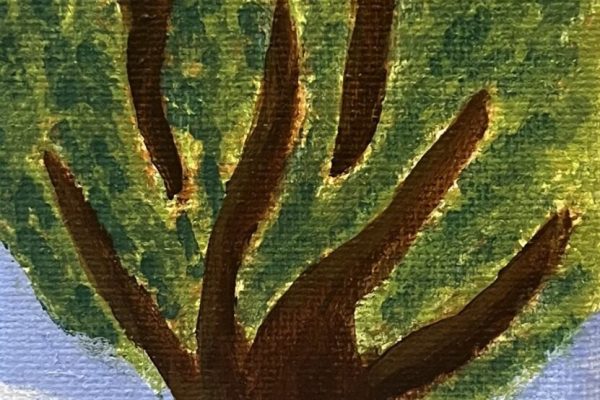I listen to the Zoom diaspora chanting kaddish.
This kaddish, sung over the web,
Dissolves into a babbling cacophony.
Yitgadal – Magnified!
Yitkadash – Made holy!
And then all fades into a jumble of crooked syllables,
Merged together in the glorification
Of the ever-present divine.
Here and there a word punctuates
The chaotic rush:
A staccato of “Amens!”
And piercing “B’rikh hu’s!”
After wading
Through the thicket of Aramaic,
My mind relaxes into
The final Hebrew phrases,
Landing securely in the blessing of
“Oseh shalom” – Bestower of peace.
The kaddish’s peace is a growing, ever-expanding gift,
First showered on “Aleinu” – each of us on the call,
And then reaching out to “Kol Yisrael” – the entire congregation of Israel
Before finally soaring to touch
“Yoshvei Tevel” – All.
All of us who dwell in these narrow confines –
May we all know peace.











